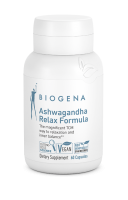Helpful Tips for Stress-Busting
Stress: How to achieve a delicate balance
It is essential to find a rhythmic balance between tension and relaxation. After each phase of exertion, there should be a deliberate phase of rest where regeneration can occur, and strength reserves are collected. By enforcing these "rest" phases, we can avoid exhaustion or other adverse effects on the body.
Stress can have many unwanted repercussions on our bodies. However, one of the most impactful symptoms of stress can be its effect on our quality of sleep. Career driven people often find it increasingly difficult to get the rest their body needs due to high-pressure jobs.
The effects of stress on your body
It is normal to feel stressed occasionally, but permanent feelings of stress can keep the stress hormones on a high level – even in the evening when we go to bed. Being in this heightened state of arousal makes it challenging to fall asleep and to sleep well at night. Sleep deprivation can not only impair your focus, mood, and energy levels. Lack of proper rest can also contribute to stress and can deteriorate our stress resilience.
However, getting enough deep sleep is as vital as regular exercise and a healthy diet. During the night's rest, body, and brain repair, restore and reenergize. E.g.:
· the brain sorts and processes the day's information
· neurons or nerve cells are reorganized
· the brain removes toxic by-products
· the body repairs cells and restores energy
· the immune system produces special molecules for immune response
Without enough sleep, your body has a hard time functioning properly, and you can be knocked down by stress more easily.
Healthy tips to manage stress
This is where lifestyle and nutrition come into play - vitamins, minerals, trace elements and fatty acids can be crucial to our diets. Leading role players supporting a stressful lifestyle are magnesium, omega-3 fatty acids, or antioxidants such as vitamin C, saffron & green tea extract.**
Here are some practical tips to keep stress at bay and build your mental resilience:
· Sleep
Sleep is essential for optimal health and stress resilience. How much sleep you need, depends on age - the "Centers for Disease Control and Prevention" recommends adults ages 18 to 60 get 7 to 9 hours of sleep.
· Exercise
Exercise is a great stress manager. Almost any form of moderate exercise can help to decrease your stress hormones levels. In addition, exercise stimulates the production of endorphins, which are natural pain and stress fighters and, on top of that, lift the mood.
· Nutrition:
Another powerful strategy in stress management is good nutrition. Eat not only well-balanced but also regularly throughout the day. This provides your brain with a stable supply of glucose to work at its best.
· Supplements (vitamins & minerals):
Micronutrients can be effective natural weapons against stress. Anti-stress nutrients (e.g. B vitamins, magnesium, potassium) equip the body to combat stress. In addition, selected amino acids, micronutrients and plant extracts can also promote the restful good night's sleep you need to tackle everyday stress.**
No matter how difficult the climb may seem, a breathtaking view rewards those who reach the top. But what's even more rewarding is the extraordinary elation one feels at having conquered the mountain. Micronutrients are valuable companions and indispensable tools for navigating the mountains of life and arriving at our destination in good shape.**
**These statements have not been evaluated by the Food and Drug Administration. This product is not intended to diagnose, treat, cure or prevent any disease.


